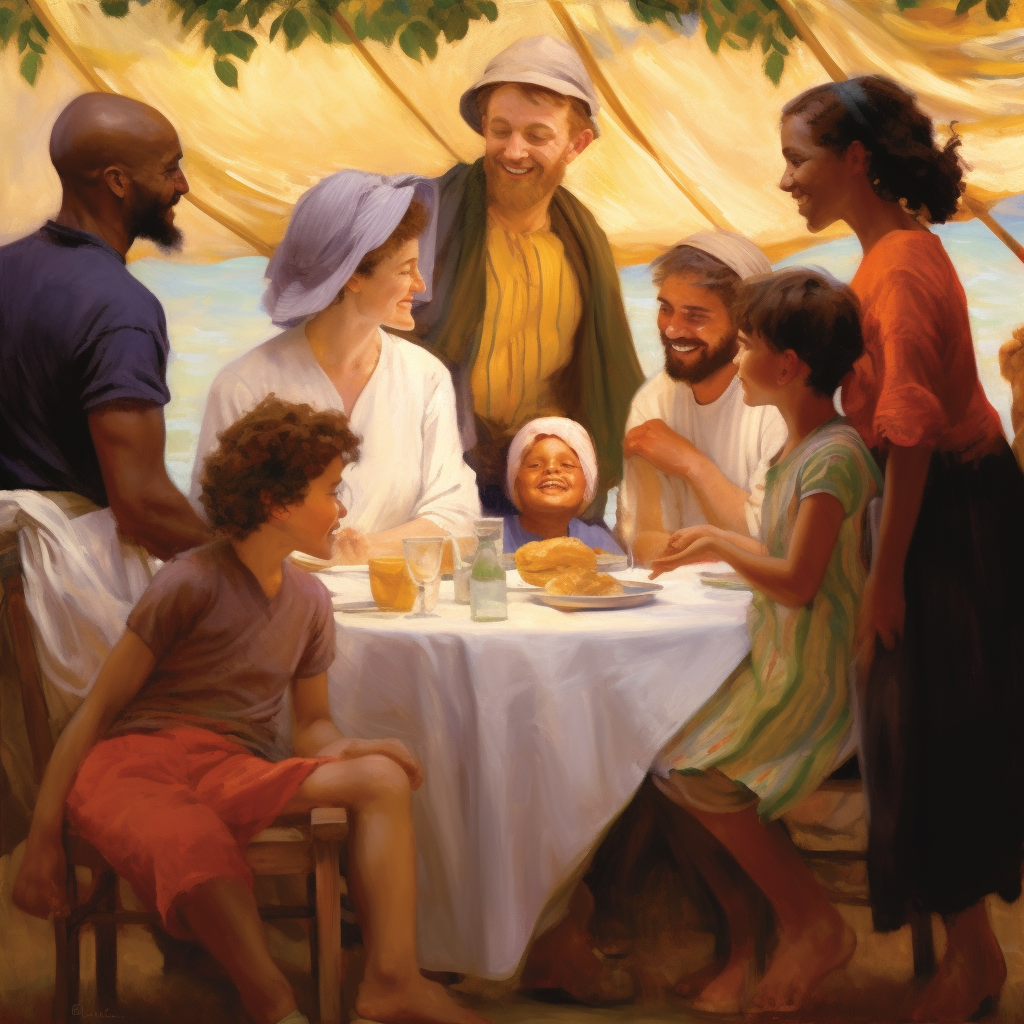“Blessed are they that do his commandments, that they may have right to the tree of life, and may enter in through the gates into the city.”
– Revelation 22:14 (KJV)
Introduction
The dilemma of choosing between the allure of darkness and the lifelong commitment to walking in the light is a struggle we all encounter. Whether consciously or subconsciously, every decision we make leans us towards one or the other. The story of John and Mark illustrates this eternal struggle and shows us that the choices we make have profound implications on our spiritual well-being.
Devotional Story
John and Mark were lifelong friends, but each had chosen a different path. John reveled in worldly pleasures, seeking the next thrill without much thought about its impact on his soul. Mark, however, valued his spiritual journey and treaded carefully, guided by God’s word.
As time passed, John’s life began to unravel. His moments of pleasure left a hollow feeling in his soul, a spiritual emptiness that seemed to grow with every indulgence. Mark watched his friend’s deterioration with a heavy heart.
He approached John one day and shared the words of wisdom:
“For what shall it profit a man, if he shall gain the whole world, and lose his own soul?”
– Mark 8:36 (KJV)
This scripture hit John like a ton of bricks. He realized the cost of his choices and felt the weight of the emptiness within him. It was a difficult realization, but also a turning point.
Determined to change, John began his tough journey back to the light. With Mark’s support and the strength found in God’s word, he was able to break free from the shackles of his previous life. And as he did, he found himself not only spiritually rejuvenated but also a beacon of light for others lost in the darkness.
“The path of the just is as the shining light, that shineth more and more unto the perfect day.”
– Proverbs 4:18 (KJV)
Conclusion
The story of John and Mark serves as a stern reminder that the allure of darkness may seem rewarding in the short term, but ultimately leaves us spiritually bankrupt. Darkness can lift us, yes, but only up to a point. It gives us the illusion of elevation while placing a low ceiling above our heads. We may climb, but we never reach the heights we were destined for. Even worse, we become isolated, separating ourselves from the true Source of all LIGHT and TRUTH. True fulfillment and spiritual growth are only found in walking in the LIGHT, following God’s commandments, and being mindful of the impact of our choices.
In making these choices, we not only lift ourselves but also serve as beacons guiding others towards God, fulfilling our role as the salt and light of the Earth.
“Let us walk honestly, as in the day; not in rioting and drunkenness, not in chambering and wantonness, not in strife and envying.”
– Romans 13:13 (KJV)
Faith Notes
The verse from Romans 13:13 is a call to moral and ethical living, typically attributed to the Apostle Paul in the New Testament. The verse serves as a moral compass, urging people to adopt a lifestyle of integrity and righteousness.
“Walk honestly, as in the day”:
The metaphor of walking “in the day” suggests living openly and transparently, with nothing to hide. Daylight is often associated with visibility, truth, and goodness.
“Rioting and drunkenness”:
These terms refer to behaviors marked by excess and a lack of self-control, specifically regarding substance abuse and unruly behavior. They symbolize the abandonment of rationality and virtue.
“Chambering and wantonness”:
These archaic terms point toward sexual immorality and unrestrained indulgence in sensual pleasures. They serve as warnings against behaviors considered detrimental to spiritual growth.
“Strife and envying”:
These words refer to social and relational disharmony, resulting from selfishness or jealousy. They act as reminders to avoid toxic emotions that sow discord.
The verse implores us to live in a way that is harmonious with others and pleasing to God, emphasizing the importance of moral choices and their impact on our spiritual well-being. It invites us to shift our focus from worldly vices to a higher, spiritual calling.
May we continue to push back the darkness and illuminate the world with the Holy Light of our Eternal Creator.
“Trust in the LORD with all thine heart; and lean not unto thine own understanding. In all thy ways acknowledge him, and he shall direct thy paths.” (KJV)
Like in the illustration below, If we trust in the LORD with all our hearts and push back on our own flesh, push back on our own will, then God will collapse the darkness and His light will make our paths straight! Trust God, be the co-pilot, and let Him take control!











